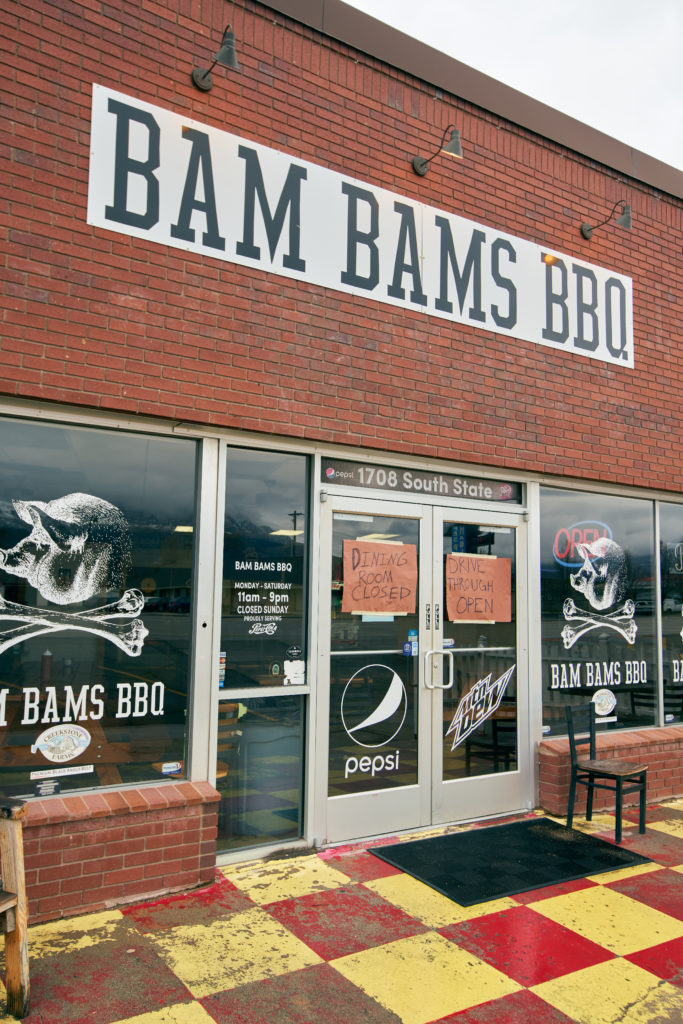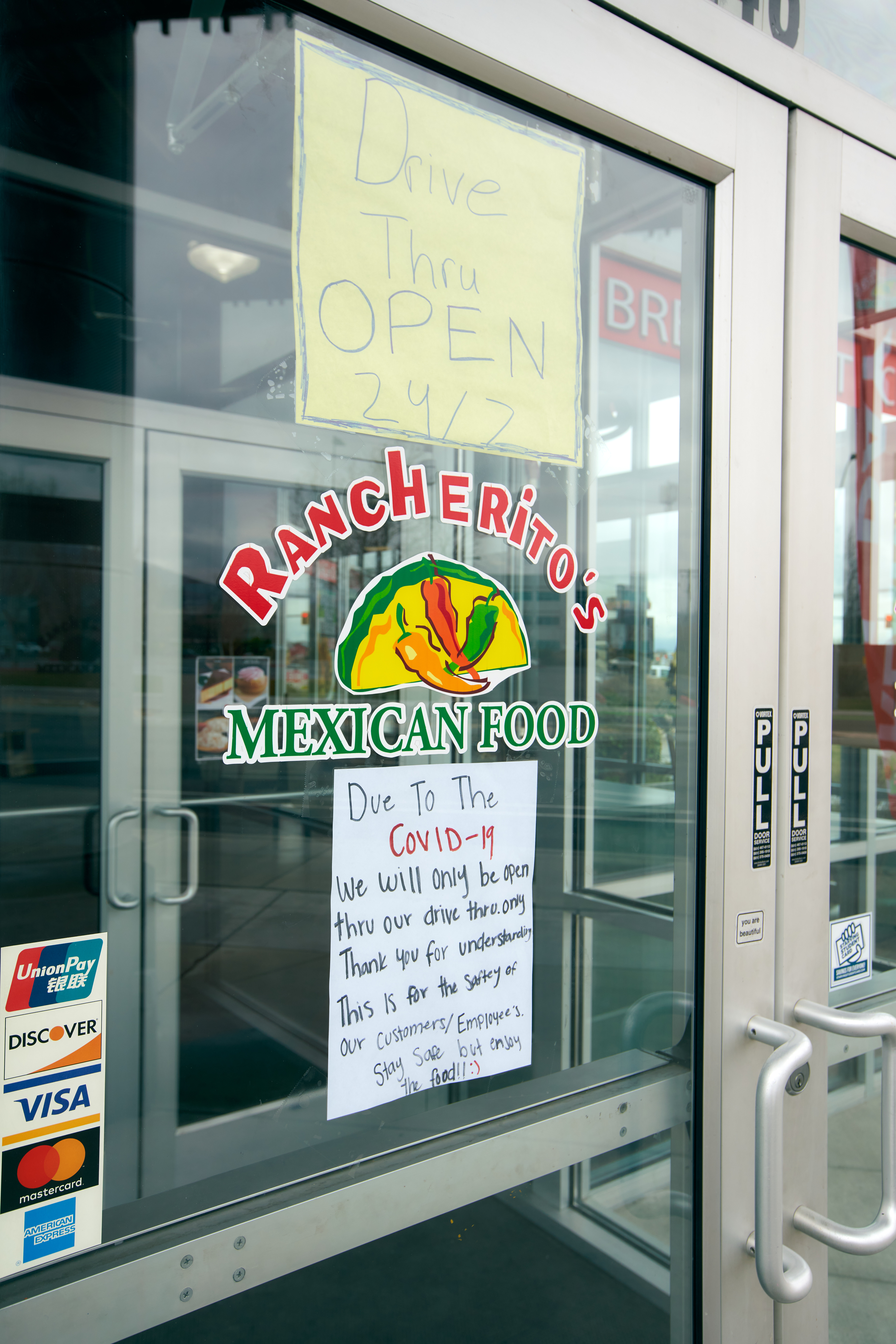Dain Pool owns three Gandolfo’s sandwich shops throughout Utah County, and since the coronavirus outbreak, he gets one or two hours of sleep per night due to concerns about how to take care of his businesses.
“It’s a different battle everyday,” Pool said. He compared running a restaurant during the pandemic to boxing matches. “You just hope you don’t lose the match. Some days you win; some days you lose.”

Restaurants are fighting to keep up with changing health regulations, fears about the virus and decreasing sales as the country slowly shuts down in an effort to curb the spread of the novel coronavirus.
“Every day it’s just a new adventure from an ownership standpoint,” Pool said. “You’re trying to figure this out just with everyone else as you’re trying to lead your teams.”
There have been times Pool said the state would announce changes in the middle of the day, and he would have to help his teams adapt to the new rules during business hours.
Utah’s most recent coronavirus directive, “Stay Safe, Stay Home,” currently allows restaurants to remain open, but dining rooms must be closed down. All orders need to be fulfilled either through take-out or delivery.
Pool’s three shops already had drive-throughs before the outbreak, but his sales are still down 30% across his three shops. He said they are lucky, though, that they haven’t been hit as hard as other restaurants.
“I know people who are down 70% or more or even just closed up shop because it was cheaper for them to close then it was to try to stay open,” Pool said.
Other local restaurants have had to scramble to put together systems to allow delivery and curbside pick-up. Colton Soelberg is a partner at Heirloom Restaurant Group, which owns Communal, Chom, Black Sheep Cafe, Station 22, Bandera Brisket, Five Star BBQ and Pizzeria Seven Twelve. Soelberg said before the pandemic, Communal, one of Utah County’s fine dining locations, would see, at most, about 5% of their sales come from takeout orders.
“It’s really gotten us to think about how do we give the Communal, or the Black Sheep or the Station 22 experience when you can’t come in the restaurant,” Soelberg said. “It’s definitely got us thinking about how we do our packaging, how we do our messaging, how we just (do) all those things (so) that we can still give the feeling of what those restaurants are without people maybe getting to experience it.”

Restaurants always have to follow strict cleanliness standards, and Pool and Soelberg said they are encouraging their employees to double down on being clean during this pandemic.
“(There’s) a lot of hand-washing already, but certainly now we’re doing more wiping down the handles, wiping down the phones, you know, sanitizing things as we go,” Soelberg said, adding they also have fewer people working at a time, which helps with social distancing.
“We go through tons of gloves now. Anytime there’s a card or cash transaction or you’re touching anyone, we are changing gloves,” Pool said.
These efforts to keep things clean are not just for the customers to see, they also to help his employees feel comfortable and safe at work, Pool said. “Every mandate that the state has put out, we have gone above and beyond.”
Pool is also encouraging his employees to stay home if they are sick. “Anyone that has any inclination of feeling sick, I ask you to call out or to call me directly, and I’ll cover your shift,” Pool said. “I don’t want to touch it, don’t want to mess with it. Even if you have anyone within your household that is sick, I ask that you tell me.”
A few of Pool’s employees have health issues that would put them at higher risk for suffering major consequences if they caught the disease, while other employees are more concerned about having enough money to feed their families and pay their rent during the pandemic. Pool said he is allowing those concerned about their health to take a leave of absence from their job for as long as they need, and once they feel comfortable, they can come back to work.
While both Pool and Soelberg are focusing on keeping their employees safe and their restaurants open, they are looking forward to the future.
“I haven’t stopped growth,” Pool said. “I’m still negotiating leases. I’m reaching out to businesses that are currently hurting, and I’m trying to buy them as awful as it sounds.”
Soelberg said he sees some of the changes they’ve made at their restaurants becoming more permanent after this is all over. The Heirloom Restaurant Group is looking forward to the day dining rooms are back open, but Soelberg said they are aware that it could take time, and consumers will likely be more used to being able to just order food to their homes.
“We see this as an opportunity to say ‘Okay, here’s a segment or a business that we never really were involved in that now we could see being a really big chunk of kind of what we do forever,'” Soelberg said.
Soelberg said the best way for people to help their favorite restaurants is by calling them and making an order.
Pool and Soelberg are optimistic of the future even though they might not know what it looks like.
“You can call (this experience) interesting,” Pool said. “I may be a little insane; I call it fun.”
Soelberg echoed Pool, emphasizing that this time could really be a turning point for many businesses.
“We can’t control what’s happening to us, but we can control what we do with what’s happening,” Soelberg said. “We’re not just trying to survive, but we really want to thrive through this time so that when everything comes back to whatever the new normal will be that we’re well positioned to be still leading the pack in terms of the best restaurants, the best things that are going on.”




